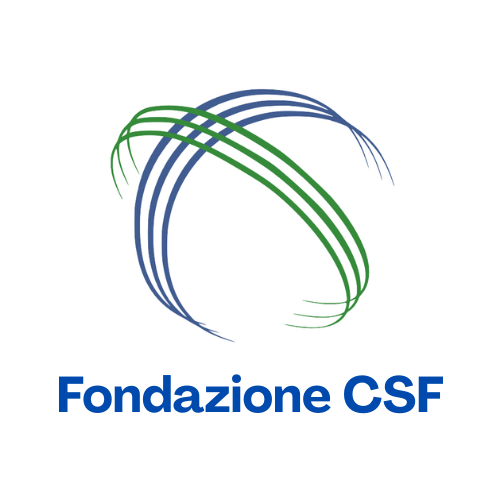Antonio Padoa Schioppa / 26 March 2024
Commentary no. 289
Russia's attack on Ukraine and the admirable response of a people determined to defend their freedom – a freedom and sovereignty guaranteed internationally and signed in 1994 by Russia itself – provoked a reaction from the West that in other circumstances would have been unthinkable. The vast disparity in size and power between the aggressor and the attacked, combined with the US and Europe's self-imposed restrictions to avoid a wider and possibly nuclear war – as threatened by the aggressor – limited the attack's scale. However, this did not prevent significant human cost and devastation over the past two years.
The main reason that leads us at this point to reflect on the opportunity to attempt a suspension of hostilities and a truce in the ongoing war in Ukraine lies in the prediction, shared by many observers, that the continuation of the fighting will not lead in the near future to reconquering the territories occupied by Russia, but only, in the best case scenario, to the freezing of the current situation on the ground.
Reclaiming the regions of Zaporizhia and Kherson (and even more so those of Donetsk, Luhansk and Crimea) would necessitate a full-scale war led by the West, involving tens or perhaps hundreds of thousands of soldiers. This is an unthinkable scenario for both the USA and the European Union (EU), even if the intervention does not (as it should not, under any circumstances) cross into the territory of Russia, as it could trigger a direct confrontation and a world war.
Given the possibility of renewed Russian offensives towards Odessa or Kiev, or beyond the current frontlines, Europe and the US face a critical decision. To prevent the collapse of Ukraine, significantly increased military aid, including potentially troop deployments, might be necessary to protect remaining Ukrainian territory. However, there is currently no consensus on the matter within the EU, and the US is against it. In other words, in a year from now the situation on the ground will, as already mentioned, at best be the same as at present, and at worst further escalated to the detriment of Ukraine, with possible human losses. This is why the proposal for a truce, followed by negotiations between the involved parties, with the support of the UN, appears reasonable.
In such a case, one might ask what would convince Russia to stop its offensive now. The answer is: Russia would try in the negotiations not only to obtain recognition of its conquests in Crimea, Donetsk and Luhansk, but also of Kherson and Zaporizhia. Obviously, Ukraine will be opposed, and the negotiations – with a truce in force – will at this point continue or fail. A series of UN-monitored referendums, on terms yet to be agreed, could offer a path forward.
The EU could propose a truce, but an agreement to that end, ideally unanimous or in any case involving the Union's larger countries (France, Germany, Italy, Poland, Spain), should be reached. Here below we present a few possibilities.
If and until an agreement to suspend the war is reached, the European Union (at least the governments of France, Germany, Italy, Poland and whoever else will join) should declare:
- their maximum level of commitment to supplying weapons to Ukraine (the agreement of 15 March 2024 between Macron, Scholz and Tusk, to be approved by the European Council);
- the possible deployment of a contingent of European troops to defend the free Ukrainian territory, if Russia attacks the territory on the Black Sea and Odessa, or the areas liberated by Kiev in 2022-23. This measure could be initiated by a few European states but would require the consent of a majority of the entire Union.
In the event that there is an agreement on the ceasefire proposed by the EU, the positions at the opening of negotiations could be:
- (on the part of Russia): agreement on the new borders of Ukraine, which coincide with the current frontline;
- (on the part of Europe and the West): commitment to withdraw to the 2014 borders, before the conquest of Crimea; then negotiations on the basis of referendums in Crimea, Donetsk, Luhansk, Zaporizhia and Kherson; commitment to respect the outcome of the referendums; and guarantee of UN intervention, including through NATO.
Scenarios following the ceasefire as a foundation for a peace agreement:
Russia's commitment to withdraw to the borders of February 24, 2022, within a few weeks, and then negotiations on the basis of internationally monitored referendums in Crimea, Donetsk, Luhansk (under Russian occupation), and Zaporizhia and Kherson (possibly liberated);
- Russia's commitment to respect the outcome of the referendums with a guarantee, in the event of future attacks, of UN intervention, including through NATO (the West); in the referendums, the proposed choices will be: the return to Ukrainian sovereignty, the establishment of independent republics, or the annexation to Russia;
- mutual guarantees on Russian minorities in Ukraine and on Ukrainian minorities in Russia;
- Ukraine's accession to the European Union, including its integration into the common defence framework, but excluding NATO membership;
- suspension of sanctions upon the signing of multilateral agreements (the involved parties, the EU, the UN);
- agreement on the reconstruction of Ukraine, mainly with funding from the EU, but also with contribution from Russia.
The key point in this hypothesis is that Russia agrees to withdraw from Zaporizhia and Kherson before the referendums. If Russia proposes to hold referendums in these two provinces as it did in Crimea, Donetsk, and Luhansk, while still under occupation, then the outcome would be probably obvious. A compromise could perhaps be reached by deciding that, even if under occupation, the referendums in the two provinces will take place under effective international control.
This does not imply any renunciation or slowing down of the process (finally started) towards establishing a robust common European defence that is essential for the Union’s security, which has been lacking for some time. History demonstrates that failing to achieve this goal could ultimately result in the loss of our freedom too.
*Emeritus Professor at the University of Milan and Member of the Scientific Committee of Centro Studi sul Federalismo (of which he has been the President from 2004 to 2010)

 En
En  It
It 



